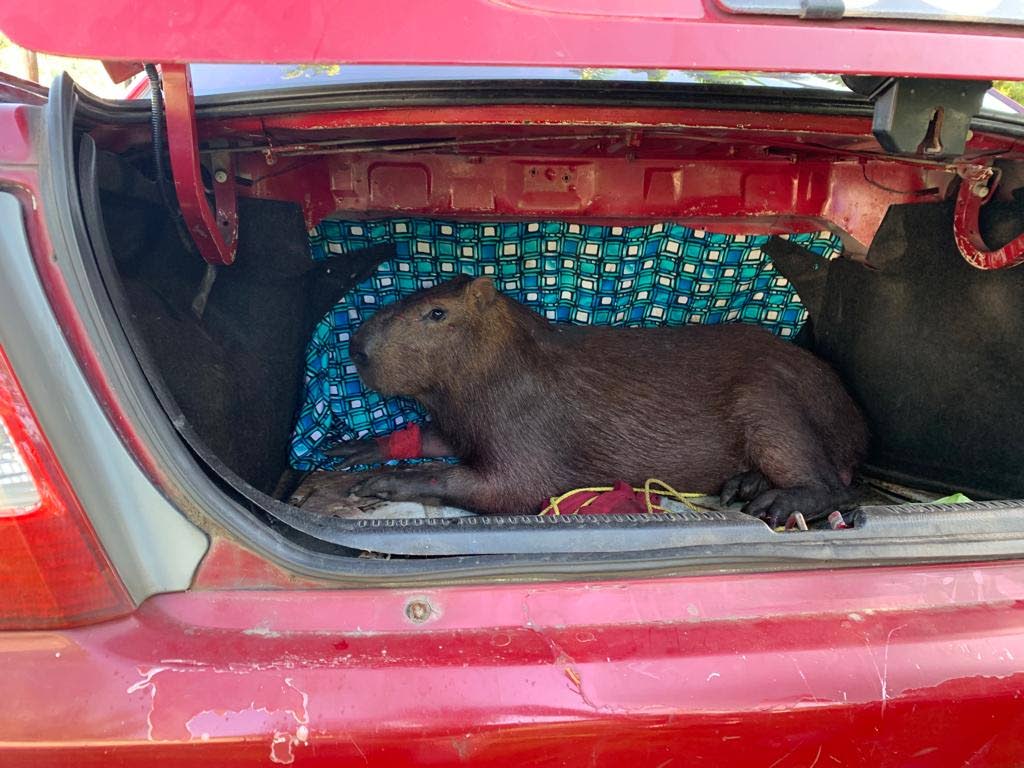Capybara come to town

The safe return of a capybara found wandering in Port of Spain to the wild on Wednesday morning was a welcome reversal of the casual cruelty meted out to wild animals that wander into populated areas of TT.
The confused capybara was spotted on the Brian Lara Promenade, surrounded by cars and bystanders.
But this was a lucky creature. When police called Ricardo Meade, director of the El Socorro Centre for Wildlife Conservation, he was already in the city. After a chase, the capybara was captured and taken to the Caroni Wildlife Sanctuary, where it was released.
It was the best of all possible outcomes for a wild animal cornered in a busy city centre.
But a caiman swimming in floodwaters on the Aranguez Main Road was not so lucky. That animal, flushed from its natural habitat by the rain, was strung up and beaten for no better purpose than the amusement of its abusers.
“It’s a kind of callous, inhumane behaviour,” commented a North Eastern Division police officer. “There may be people who think that it might be a joke, but it’s not.”
Laws against cruelty to animals are useless if they aren’t enforced, and the enthusiasm for doing so falters in the face of the widespread normalisation of casual violence against animals.
Elspeth Duncan, Tobago-based columnist for Newsday, has written extensively about the appalling abuse of animals that she has witnessed.
One dog was found emaciated and helpless in the “care” of its owners and later died, despite efforts at reversing the neglect. The pets owned by a family in marital collapse became surrogates for the patriarch’s anger.
Globally, a link of brutality between the abuse of women and of family pets has long been established in domestic violence cases, and animal cruelty has been identified as a “predictor” crime, foreshadowing violence against people.
The Animals (Diseases and Importation) Act (2020), a notable strengthening of weak laws, threatens a fine of $200,000 and imprisonment for five years for anyone convicted of cruelly beating, ill-treating, starving, torturing or abusing an animal.
But the act, assented to in July 2020, is still awaiting proclamation.
When it is brought into force, it must be accompanied by systems that improve the public’s capacity to report crimes against animals and improve police sensitivity to them.
The government must also lead by example in acknowledging the repeated reports of animals driven by terror to self-harm in the perfect storm of flashing lights and loud noises caused by the widespread use of fireworks.
The law must be brought into force, and used as a potent deterrent to unnecessary violence against helpless animals.


Comments
"Capybara come to town"